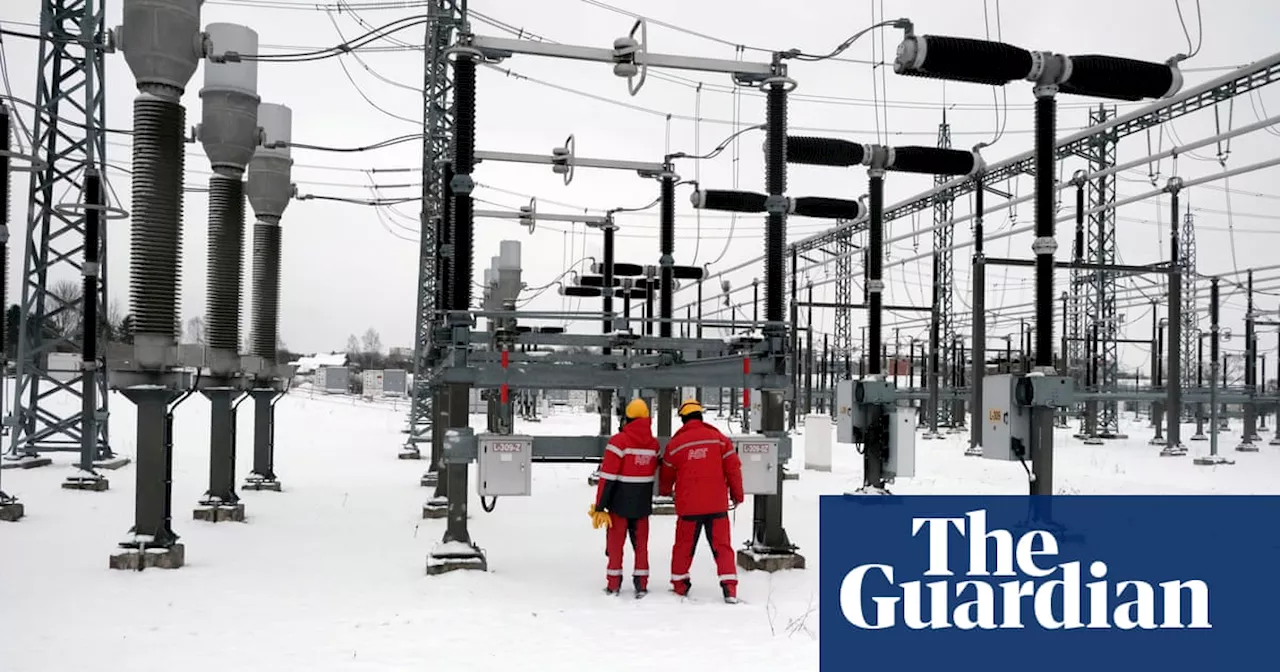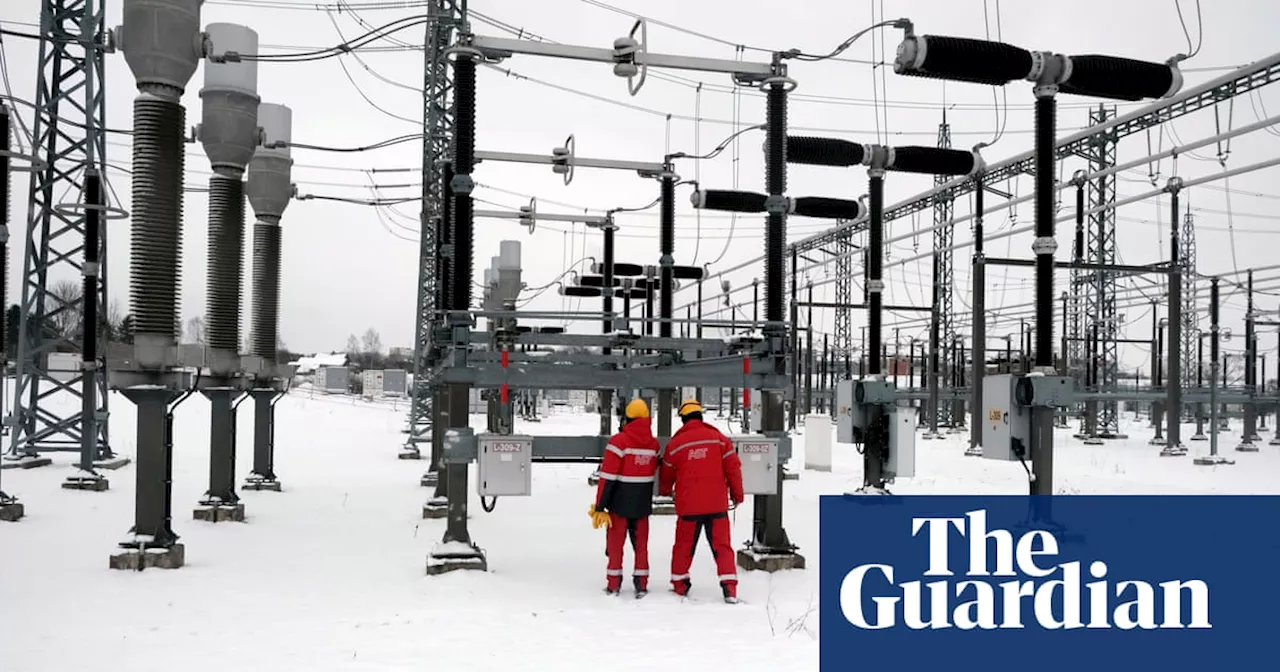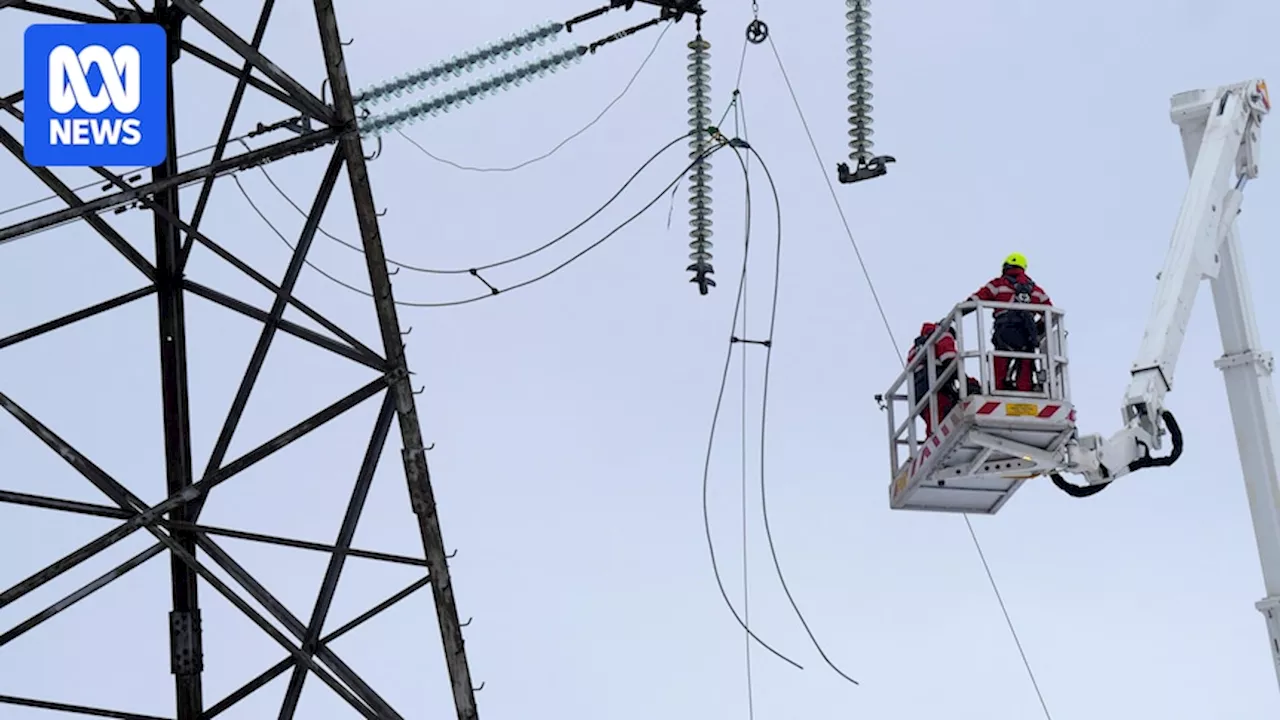Estonia, Latvia, and Lithuania successfully severed ties with Russia's electricity grid, marking a significant step towards energy independence and closer integration with the European Union. The move was prompted by concerns over Russia's potential use of energy as a geopolitical weapon.
Three Baltic nations, Estonia, Latvia, and Lithuania, have successfully disconnected their electricity systems from Russia's power grid. This momentous move, years in the making, signifies a significant step towards deeper integration with the European Union and enhanced energy security. The disconnection, part of a long-term plan, aims to thwart Russia's potential for using energy as a geopolitical tool. The Baltic countries invested nearly 1.6 billion euros ($2.
6 billion) since 2018 to upgrade their grids, preparing for this pivotal transition. The disconnection process was executed seamlessly on Sunday afternoon local time, with the Baltic power systems merging with European energy networks through links with Finland, Sweden, and Poland. Lithuanian Energy Minister Zygimantas Vaiciunas affirmed, 'We have removed any theoretical possibility of Russia using energy control as a weapon.' The synchronized disconnection involved frequency management trials conducted prior to the actual separation, ensuring a smooth transition without any noticeable disruptions. Latvian Energy Minister Kaspars Melnis remarked, 'The system is stable, the process is happening smoothly, no one is noticing that something changed.' Contingency plans are in place to address potential power shortages, with some heavy energy users, such as factories, prepared for temporary disconnections. Authorities remain vigilant against any potential sabotage or risks associated with the grid switch. Latvian grid operator AST reported no disruptions so far, while Lithuania's state-run grid operator Litgrid confirmed Russia's full cooperation during the disconnection process. For Russia, the decoupling means its Kaliningrad exclave, geographically isolated between Lithuania, Poland, and the Baltic Sea, is now entirely reliant on its own power system. The Kremlin, however, maintains confidence in its ability to ensure uninterrupted and reliable energy operation for the region
BALTIC STATES RUSSIA ENERGY SECURITY EUROPEAN UNION DISCONNECTION HYBRID WARFARE
Australia Latest News, Australia Headlines
Similar News:You can also read news stories similar to this one that we have collected from other news sources.
 Baltic States Disconnect from Russian Power GridThe three Baltic states - Estonia, Latvia, and Lithuania - have successfully disconnected their electricity systems from Russia's power grid, marking a significant step in their energy independence. The move was aimed to strengthen security and integrate the countries more closely with the European Union. The Baltic states have been planning this decoupling for decades, and the process gained urgency following Russia's annexation of Crimea in 2014.
Baltic States Disconnect from Russian Power GridThe three Baltic states - Estonia, Latvia, and Lithuania - have successfully disconnected their electricity systems from Russia's power grid, marking a significant step in their energy independence. The move was aimed to strengthen security and integrate the countries more closely with the European Union. The Baltic states have been planning this decoupling for decades, and the process gained urgency following Russia's annexation of Crimea in 2014.
Read more »
 Baltic States Disconnect From Russian Power Grid in Security BoostThe Baltic states of Estonia, Latvia, and Lithuania have successfully disconnected their electricity systems from Russia's power grid, marking a significant step towards energy independence and security. The move, years in the making, allows the countries to integrate more closely with the EU power system and reduces their reliance on Russia for energy.
Baltic States Disconnect From Russian Power Grid in Security BoostThe Baltic states of Estonia, Latvia, and Lithuania have successfully disconnected their electricity systems from Russia's power grid, marking a significant step towards energy independence and security. The move, years in the making, allows the countries to integrate more closely with the EU power system and reduces their reliance on Russia for energy.
Read more »
 Women Struggle to Disconnect From Work Due to 'Role Conflict Overload'Experts say women face a 'role conflict overload' blurring the lines between work and home life. Multitasking and the expectation of constant availability contribute to stress and burnout. The article highlights the challenges women face in disconnecting from work and the impact of flexible work arrangements on their ability to separate professional and personal responsibilities.
Women Struggle to Disconnect From Work Due to 'Role Conflict Overload'Experts say women face a 'role conflict overload' blurring the lines between work and home life. Multitasking and the expectation of constant availability contribute to stress and burnout. The article highlights the challenges women face in disconnecting from work and the impact of flexible work arrangements on their ability to separate professional and personal responsibilities.
Read more »
 The Always-On Dilemma: Why We Can't Disconnect on HolidayThis article explores the growing trend of staying connected to work during holidays, despite its detrimental effects on well-being. It highlights research showing the majority of Australians check work emails and communication channels while on leave, often due to a fear of falling behind or an obligation to respond to urgent matters. The article emphasizes the importance of true disconnection for mental health and productivity, urging for a cultural shift towards respecting and encouraging meaningful breaks.
The Always-On Dilemma: Why We Can't Disconnect on HolidayThis article explores the growing trend of staying connected to work during holidays, despite its detrimental effects on well-being. It highlights research showing the majority of Australians check work emails and communication channels while on leave, often due to a fear of falling behind or an obligation to respond to urgent matters. The article emphasizes the importance of true disconnection for mental health and productivity, urging for a cultural shift towards respecting and encouraging meaningful breaks.
Read more »
 The Holiday Disconnect: Why We Stay Connected and the Cost of Always-On MentalityWhile taking holidays is crucial for well-being, Australians are increasingly staying connected to work during their downtime. The article explores the reasons behind this trend, the impact on mental health and productivity, and offers solutions for achieving true disconnection during leave.
The Holiday Disconnect: Why We Stay Connected and the Cost of Always-On MentalityWhile taking holidays is crucial for well-being, Australians are increasingly staying connected to work during their downtime. The article explores the reasons behind this trend, the impact on mental health and productivity, and offers solutions for achieving true disconnection during leave.
Read more »
 Nato flotilla assembles off Estonia to protect undersea cables in Baltic SeaTaskforce to act as ‘security camera of the Baltic’ after string of suspected sabotage incidents on critical infrastructure
Nato flotilla assembles off Estonia to protect undersea cables in Baltic SeaTaskforce to act as ‘security camera of the Baltic’ after string of suspected sabotage incidents on critical infrastructure
Read more »
